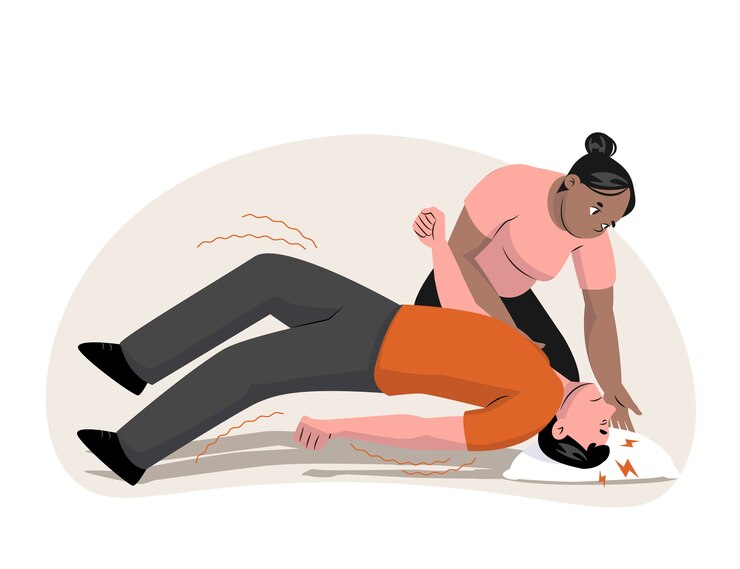Preventing Fits: Causes and Tips for a Healthier You

Table of Contents
Common Triggers for Fits and Strategies to Avoid Them

Triggers for fits can vary greatly from person to person, but there are some common factors that tend to provoke seizures in individuals with epilepsy. One such trigger is stress. The body’s response to stress can lead to chemical changes in the brain, increasing the likelihood of a seizure occurring. It is essential, therefore, to find strategies to manage and reduce stress levels. This may involve practicing relaxation techniques such as deep breathing exercises, yoga, or mindfulness meditation. Additionally, maintaining a healthy lifestyle through regular exercise, getting enough sleep, and eating a balanced diet can also help minimize stress and lessen the chances of experiencing a seizure.
Another trigger for fits is sleep deprivation. Lack of sleep can disrupt the electrical activity in the brain, making seizures more likely to occur. Establishing a consistent sleep routine, where one goes to bed and wakes up at the same time each day, can help ensure an adequate amount of rest. Creating a sleep-friendly environment, such as keeping the bedroom cool, dark, and quiet, can also promote better sleep quality. Additionally, avoiding caffeine, nicotine, and stimulating activities before bedtime can aid in achieving a more restful night’s sleep. By prioritizing sleep and making it a priority in our daily lives, we can significantly reduce the risk of seizures and improve overall quality of life for individuals with epilepsy.
Here’s a table-format discussion on fits, their causes, and preventive measures:
| Aspect | Description |
|---|---|
| Understanding Fits | Fits, also known as seizures, are sudden, uncontrolled electrical disturbances in the brain that can cause changes in behavior, movements, sensations, or consciousness. It’s essential to understand the different types of seizures and their characteristics. |
| Causes of Fits | Fits can have various causes, including epilepsy, brain injury, stroke, infections, genetic factors, tumors, drug or alcohol withdrawal, and metabolic imbalances. Identifying the underlying cause is crucial for effective treatment and management. |
| Triggers | Certain factors or triggers can precipitate fits in susceptible individuals. Common triggers include stress, sleep deprivation, flashing lights, loud noises, certain medications, alcohol consumption, and hormonal changes. Avoiding triggers can help prevent fits. |
| Medication Adherence | For individuals with epilepsy or other seizure disorders, adhering to prescribed medications is essential for preventing fits. Skipping doses or abruptly discontinuing medications can increase the risk of breakthrough seizures. Follow the prescribed treatment plan diligently. |
| Lifestyle Modifications | Adopting a healthy lifestyle can help reduce the frequency and severity of fits. Maintain regular sleep patterns, manage stress through relaxation techniques, avoid excessive alcohol or drug use, and participate in regular physical activity to support overall well-being. |
| Safety Precautions | Implement safety precautions to minimize the risk of injury during a fit episode. Ensure a safe environment by removing sharp objects or obstacles, cushioning the head, placing the person on their side to prevent choking, and seeking medical assistance if necessary. |
| Seizure Action Plan | Develop a seizure action plan in collaboration with healthcare providers, family members, and caregivers. This plan should outline steps to take during a seizure, emergency contacts, and instructions for administering rescue medications if applicable. |
| Education and Awareness | Educate yourself, family members, friends, and caregivers about fits and seizure first aid. Recognizing the signs of a seizure, knowing how to respond appropriately, and reducing stigma surrounding epilepsy can improve outcomes and support individuals living with seizure disorders. |
Can stress be a common trigger for fits?
Yes, stress is a common trigger for fits in many individuals. It is important to manage stress through relaxation techniques, such as deep breathing exercises or meditation, to help avoid fits.
Are there certain foods that can trigger fits?
While it varies from person to person, certain foods like caffeine, alcohol, or artificial sweeteners can potentially trigger fits in some individuals. It is recommended to keep track of your diet and consult with a healthcare professional to identify any specific triggers.
Is lack of sleep a common trigger for fits?
Yes, inadequate sleep or irregular sleep patterns can increase the likelihood of experiencing fits. Establishing a consistent sleep schedule and practicing good sleep hygiene can help reduce this trigger.
Can flashing lights or bright patterns trigger fits?
Yes, for individuals with photosensitive epilepsy, exposure to flashing lights or specific patterns can trigger fits. It is important to be cautious and avoid such stimuli, especially in environments like nightclubs or concerts.
Can certain medications cause fits?
Yes, some medications may have fits listed as a potential side effect. It is crucial to discuss any concerns or history of fits with your healthcare provider before starting a new medication.
Can hormonal changes trigger fits in women?
Yes, hormonal changes during menstrual cycles or menopause can be potential triggers for fits in some women. Consulting with a healthcare professional may help identify strategies or medications to manage this trigger.
Can excessive physical activity lead to fits?
In some cases, intense physical exertion or overheating can trigger fits, particularly in individuals prone to exercise-induced fits. It is important to maintain a balanced exercise routine and stay hydrated to reduce the risk.
Are there any specific strategies to avoid fits during pregnancy?
Pregnancy can sometimes increase the risk of fits. It is important for pregnant women with a history of fits to work closely with their healthcare provider to adjust medications, monitor hormone levels, and ensure proper prenatal care.
Can certain environmental factors trigger fits?
Yes, environmental factors such as exposure to certain chemicals, allergens, or pollutants can potentially trigger fits in sensitive individuals. Identifying and avoiding these triggers can help reduce the risk.
Can emotional factors, such as anxiety or excitement, trigger fits?
Yes, emotional factors like anxiety, excitement, or intense emotions can act as triggers for fits in some individuals. Engaging in stress management techniques, counseling, or therapy may be beneficial in managing these triggers.






